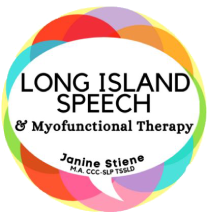Blog
Does my child have a phonological disorder?
What are phonological processes?
Phonological Processes are patterns of sounds that typically developing children use to simplify speech as they are learning to talk. A phonological disorder occurs when the phonological processes persist beyond the age when most typically developing children stop using them or when the processes are used abnormally (or differently than expected).
Why do children have phonological processes?
Children use phonological processes because they do not have the ability to coordinate the lips, jaw, tongue, and cheeks for clear and articulate speech. As a result, children simplify words in predictable ways until the coordination is developed to properly articulate words.
What is a phonological disorder?
A child is considered to have a phonological disorder when the processes persist beyond a “normal” age when other children typically stop using the phonological process. For instance, if your child is 4 years old and he/she still uses reduplication (e.g. wawa for water) that would be considered delayed since deleting the consonant at the beginning part of a word is typically stopped by 3 years of age. The excessive use of phonological processes can also lead to a phonological disorder because when many phonological processes are the child’s intelligibility becomes very poor (the child is hard to understand to the unfamiliar listener).
What is considered typically intelligibility?
- 19-24 months- a child should be 25-50% intelligible
- 2-3 years of age- a child should be 50-75% intelligible
- 4-5 years of age- a child should be 75-90% intelligible
- 5+ years- 90-100% intelligible
How do I know if my child has a phonological disorders?
Often times articulation disorders are confused for phonological disorders. Since both phonological disorders and articulation disorders are considered speech disorders it can sometimes be tricky (as non-professionals) to tell the difference. Here are a few tips to differentiate the two:
An articulation disorder occurs when:
- Speech sound errors persist beyond age appropriate times
- A child is mild to moderately unintelligible
A phonological disorder occurs when:
- Phonological Processes exist beyond the typical development
- Phonological disorders exist that are not seen in typical development
- A child is highly unintelligible due to excessive use of phonological processes
How can I help my child who has a phonological disorder?
Remediation for kids with phonological disorders involves targeting phonological processes as determined by a Speech Language Pathologist. Targeting the phonological process instead of targeting each sound error (articulation approach) is common. If you suspect your child may have a phonological disorder contact any one of our offices to set up an evaluation.
Source:
Mommy Speech Therapy. (n.d.). Retrieved February 28, 2015, from http://mommyspeechtherapy.com/?p=2158





